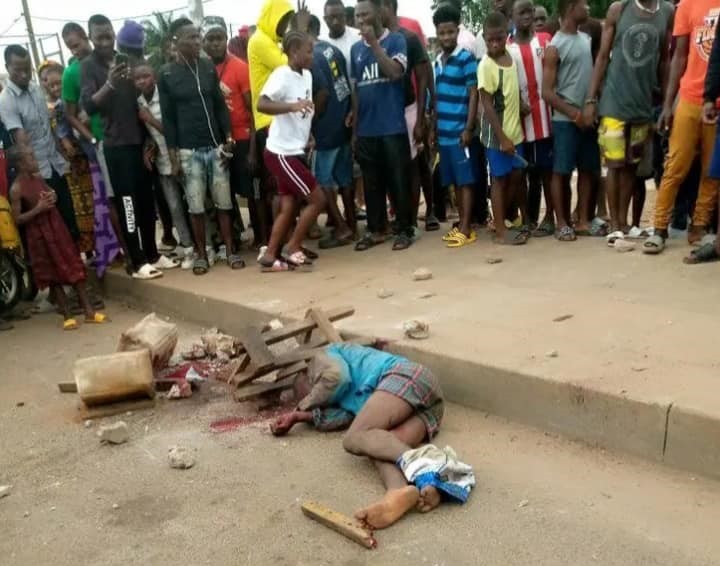Like many other nations, Liberia struggles with the complicated problem of mob violence. The general well-being of communities, human rights, and social cohesiveness are all seriously threatened by this issue. Effectively addressing this dilemma calls for a thorough and varied strategy. This article examines important tactics and policies that Liberia should use to end mob violence and advance a legal culture that values justice, peace, and the rule of law.
In Liberia, mob violence has become a regrettable and widespread occurrence that undermines democracy and takes the lives of innocent people. It is a flagrant transgression of the values that support a just and democratic society.
Understanding the Root Causes: It’s critical to comprehend the underlying causes of mob violence before devising measures to counteract it. Key factors that are frequently mentioned include poverty, unemployment, a lack of trust in the legal system, and limited access to education. Mob violence can also be fueled by ethnic tensions, past grievances, and a sense of impunity. For change to be sustained, these underlying issues must be addressed.

1. Strengthening the Judicial System: A lack of trust in the legal system is one of the main causes of mob violence. Rebuilding public confidence can be aided by bolstering the judiciary’s authority, guaranteeing impartial and prompt trials, and improving access to legal services. Human rights and conflict resolution training for law enforcement personnel can help create a more equitable and responsible legal system.
2. Public Awareness and Education: It is crucial to educate the people about human rights, the rule of law, and the repercussions of mob violence. Workshops, awareness campaigns, and community-based activities can assist in altering perceptions and advancing peaceful conflict resolution. People in the community can be encouraged to trust the legal system by stressing the value of reporting crimes to the police rather than turning to vigilantism.
3. Community Policing and Engagement: Law enforcement and communities must establish constructive links. Establishing community policing tactics, in which police collaborate with residents to resolve neighborhood problems, can promote cooperation and confidence. Town hall meetings and dialogues, among other community involvement programs, offer a forum for candid discussion and problem-solving.
4. Social Programs and Economic Empowerment: Preventing mob violence requires addressing socioeconomic issues. Putting in place initiatives that support entrepreneurship, job development, and vocational training will help lessen poverty and the despair that frequently breeds violence. Social initiatives that prioritize cultural exchange, youth development, and conflict resolution might help to establish a stronger sense of community.
5. Strengthening Leadership and Governance: Programs targeted at enhancing leadership and governance at all levels should be included in efforts to end mob violence. Public trust in institutions is raised and corruption is decreased through transparent and accountable government. Vigilantism can be discouraged and peaceful conflict resolution can be encouraged by strong leadership that sets an example of respect for the law.
6. Media Responsibility: The media has a big say in how the general public thinks and feels. Promoting responsible journalism that stays away from sensationalism and encourages factual reporting will help create a public that is more educated and more accountable. Media campaigns can also be used to emphasize the value of peaceful coexistence and spread messages opposing mob violence.
In conclusion, addressing both the immediate symptoms and the underlying causes of mob violence in Liberia necessitates a thorough and ongoing effort to combat the threat. Liberia can lead the way toward a society where the rule of law reigns and mob violence is eradicated by bolstering the judicial system, increasing public awareness, encouraging community engagement, promoting economic empowerment, improving leadership and governance, and supporting responsible media practices.
Liberian-born Emmanuel Orlind Cooper is an accomplished multimedia journalist with extensive experience covering news and stories on a variety of media platforms. Orlind's work frequently demonstrates his profound grasp of the region and its complexity, given his Liberian heritage.
Now residing in Woodbridge, Virginia, he keeps connecting with readers across continents with his perceptive journalism and sharing his viewpoint. He is well-respected in the sector because of his unwavering commitment to honesty and morality, which sets him apart in the field.
Orlind's work is more than simply his job; it's a dedication to giving voice to the voiceless, illuminating unsung tales, and advancing the worldwide conversation on important concerns. His goal as a journalist is to use the media's power to change the world, not just to disseminate information. He is a key player in modern journalism because of the inspiration, education, and engagement that his work consistently provides.


